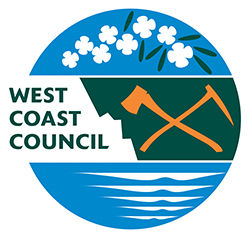Why are Council involved?
The Local Government Act 1993 provides for Councils to abate public nuisances, including the risk of fire. If an inspection shows there is, or is likely to be, a direct fire risk on private property that presents an immediate risk to life or property on adjoining land then the Local Government Act 1993 assigns Councils with the responsibility to clear a hazard at the owner's expense if the owner does not do so inside a specified time.
What happens?
If after assessment of the property, a fire risk is determined, an Abatement Notice is sent to the property owner. Property owners are encouraged to take immediate steps to abate the fire risk, and communicate with Council about what they are doing. If a notice is not complied with Council is then compelled to clear the fire risk on the owner's behalf. Where this occurs the property owner will be billed for this work.
I received a Notice - where do I go for advice?
Contact Council 6471 4700.
I'm not going to be able clear vegetation in time - what do I do?
You need to contact Council before the deadline. An extension will only be considered in extreme circumstances. All requests for extensions must be made in writing to the General Manager at the West Coast Council, PO Box 63, Queenstown 7467.
I think there's overgrown vegetation on my neighbour’s block?
It is always best to try and resolve these concerns with your neighbour first. If this is not working, then you may contact the Council. Following an inspection it will be determined if the fire risk is such that an abatement notice is required. If action is required it may take some time to progress from the notice to the works being done to reduce vegetation.
What is it going to cost me if the Council clears the hazard on my property?
The costs vary depending on the size and type of hazard, the time required to clear the hazard and the equipment required.
I worked to clear the vegetation, and Council is still not satisfied, why?
The Abatement Notice must be complied with in full to provide fire protection. It is also necessary to continue to control the vegetation throughout the bushfire season, so work done in late spring, may be required to be done again at intervals through until April.
Can I burn off garden waste in my backyard to help reduce the hazard?
Smoke from burning off in built-up areas is a public nuisance, particularly for sufferers of illness such as asthma. Backyard burning is controlled by the state-wide Environment Management and Control (Distributed Atmospheric Emissions) Regulations 2007. These regulations provide that vegetation may be burnt to reduce a fire hazard, but must be done in a reasonable manner so as not to cause a smoke nuisance to your neighbour. You also need to check with the Tasmania Fire Service (TFS) as to whether a fire permit is required, you should also follow any TFS guidelines to ensure that you are doing so in a way that is not going to create a fire risk in itself. For all these reasons it is recommended that in residential areas vegetation be removed rather than burnt. Council’s Transfer Stations accept green waste.
